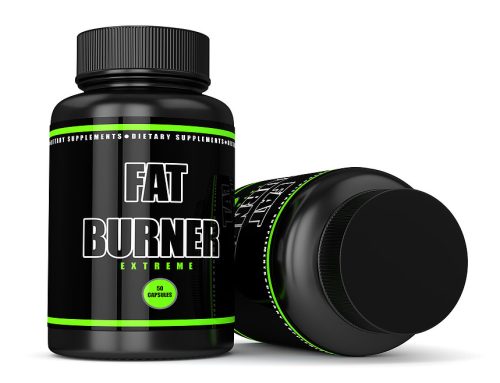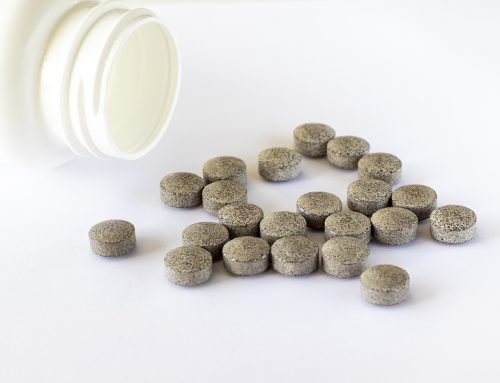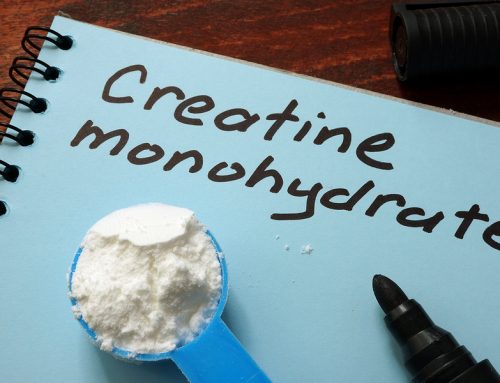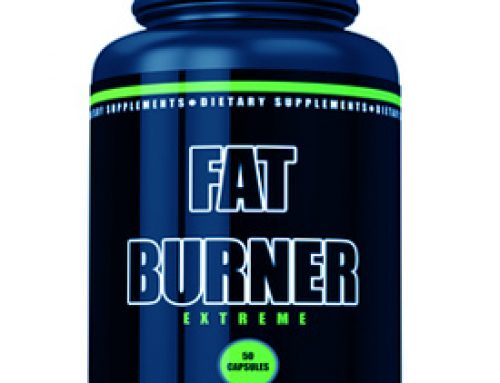Yesterday a reader alerted me to a “new miracle fat burner” that has been making its rounds around the internet. She told me it came from an African tree and a “clinical study” showed that subjects lost 28 pounds of fat in 10 weeks – get this – “with no change in diet or exercise!” That’s right, just pop the pill. The advertisement even quoted the study it came from. Wow, so a study exists and an advertisement on the internet says it’s true. That does it. It must be true then right? (face palm).
 I’m not even going to mention the product name this time because this is just one in a long string of “fat burner” supplement scams and frankly, I could exchange the name with a dozen others and it would be a similar story.
I’m not even going to mention the product name this time because this is just one in a long string of “fat burner” supplement scams and frankly, I could exchange the name with a dozen others and it would be a similar story.
Instead, I want to make one simple point today: if you don’t or can’t analyze the supplement research, then at least analyze the claims in the advertisements with a critical mind before you blindly accept them at face value.
Sometimes simple things raise a red flag. In this case the dubious claim said:
“28 pounds of fat loss in 10 weeks with NO CHANGE IN DIET OR EXERCISE.”
Let’s do some math shall we? 28 pounds of fat loss in 10 weeks is 98,000 calories, or 9,800 calories per week, or 1400 calories per day. Let me get this straight – the researchers and the makers/advertisers of this supplement are claiming that this product will raise metabolic rate (or otherwise shift energy balance) by 1400 calories per day!
Whoa! Did anyone actually stop to think this through with pure common sense? Is it a more reasonable assumption that an over-the-counter plant extract from Africa caused an ASTRONOMICAL increase in metabolism that no other supplement in history or even powerful drugs has ever even come close to, or that the research is flawed and the advertisement claims are bogus?
Two years ago I wrote an in depth article about this supplement for my inner circle members. I read all 5 of the published studies (full text) that were relevant and picked apart the study design, publishing methods, controls and potential vested interests. It took me an entire afternoon to find and read all the papers and then another day to write and edit the research review article.
Here’s the problem – and I really understand and sympathize with you on this one.
Most people – even really smart people, like my readers – do not have the time or inclination to look up a research study, buy the paper (if necessary), read it, decipher it and put it into the context of the entire body of research on that product and of weight loss research at large.
But most people do have the capacity to install a big red BS alarm in their head and know it’s crap they’re smelling when they catch a whiff. The problem is, they often don’t. So the scammers are getting rich again and the only thing getting lighter for many people is their wallet.
Is your BS alarm turned on? (Do you even have one?)
Despite a totally “too-good-to-be-true” claim that surely should have raised skepticism even in generally non-skeptical and trusting types, there was a feeding frenzy for this stuff based on a single magazine article a couple years ago, and now once again based on an extremely well-crafted internet sales pitch.
Add a little hope, a little fear and in some cases, a dash of desperation in the reader, and the supplement companies have taken another one to the bank.
Consumers in the marketplace have such short memories. Doesn’t anyone remember that last African wonder pill, Hoodia? What happened to that one? IT WAS ALL THE RAGE – I mean, RAGE! It was on 60 Minutes for abs-sake!
Where is it now? And why another? (and another, and another?)
How many of these products are already buried in the supplement graveyard?
Haven’t we learned our lessons from the past? As Australian strength coach Ian King wrote:
“As a coach, I like to see a supplement on the market for about 3 years before coming to too many conclusions. The power of marketing can have a great placebo effect. But after a few years, any supplements that can be described as ‘unclear’ get sorted out by consumer demand and supply. If you analyzed the ‘rage’ supplements per marketing dollar each year for the last 10 years, you would be stunned by how many ‘almost drug-like’ supplements have come and gone.”
I’m not stunned, because I’ve been watching this happen for decades. I am, however, surprised at the lack of critical thinking by most consumers. And I’m sickened by the slimy tactics of diet pill companies..
In my opinion, finding effective diet and fat loss supplements is like wading knee deep through garbage at a landfill. If you dig through the piles of junk long enough, you might find something that may have some value… but it’s still, more or less, trash.
I would guess that at least 19 out of every 20 (95%) fat burner or weight loss pill supplements that has ever been released don’t work, and the rare remaining one (5%) is marginally effective, it might have side effects, it’s overpriced and the advertising claims blow the benefits far out of proportion.
A warning and conclusion from Burn the Fat, Feed the Muscle
Let me conclude with something I wrote in the chapter about supplements in my book, Burn the Fat, Feed the Muscle:
“I find the obsession so many people have with taking pills for weight loss both perplexing and troubling, especially when you consider that fat loss can be achieved safely and naturally, so simply and predictably with sensible nutrition and exercise…”
“Spending big money, sometimes $40-$60 a bottle or more on pills that haven’t been thoroughly vetted for safety and effectiveness is even more baffling to me when you consider that even if you get some small benefit, it’s nothing you couldn’t get from a few minutes more of daily exercise and clean eating…”
“Nutrition from whole food, strength training, cardio training and mind training – the four major elements of a good fat loss program – are the keys to your progress, not supplements. If you’re not satisfied with your results, believe me, it’s not because you have a “diet pill deficiency.”
-Tom Venuto, Burn the Fat, Feed the Muscle
www.BurnTheFat.com
Related Articles:
Acai Berry Scammers Caught Red Handed
https://www.burnthefatblog.com/archives/2011/04/acai-berry-scam-shocking-proof.php
Subscribe to the Burn the Fat weekly newsletter and get my ebook, "The 20 Best Fat-Burning, Muscle-Building Recipes Of All Time" FREE!
Your email is safe with me!






Thanks Tom – well worth reading as always and sadly it is necessary to constantly remind people about these shonky products, because wishful thinking and sometimes desperation is easy prey for the “fat burner wonder drug” pushers.
I would agree with tom on this subject matter. How can a supplement help you lose weight when the drug companies can’t even find a solution worth a sh*t
“ASTRONOMICAL increase in metabolism that no other supplement in history or even powerful drugs has ever even come close to”
Well… DNP does that and even surpasses that, doesn’t it?
I doubt that, but honestly I don’t know because Ive never read a study that quantified the effect of DNP. I have very little knowledge on the subject, but what I have read and been told is that it is not comparable to steroids in risk to benefit ratio – it is among the most potentially dangerous drugs used in physique sports – and could literally kill you. Also not really relevant to this post nor even a good counter example. FYI: Performance or physique enhancing drugs are not something we promote around here. This website and our entire community promotes a natural approach.
According to very comprehensive summary of all relevant studies on DNP effects (part of Toxocological Profile for Dinitrophenols published by U.S. Department of Health and Human Services), +50-80% increase in metabolic rate is common. It’s also potentially FATAL, and is extremely dangerous – no arguing about that. I absolutely agree with the natural and balanced approach you’ve been promoting over the years, so this info is nothing more than a “fun fact”, although in reality rather a warning and reminder – quick fixes are too good to be true, and in DNP case, even fatal.
I think that people fall into the trap of quick & fast results.
In truth I would say that diet and exercise complimented with the supplements is the way to go for a healthy life style.
Those looking for miracles, well I am afraid they’ll just carry on losing money & not the weight.
Tom, I agree with you that these so-called “miracles in a capsule” are pure nonsense. And I agree the only way to get thin is to consume fewer calories and move around a lot more. I mean, that’s a no-brainer, right? But this is the reality for me (and probably a lot of other people, too): I’m an exceptionally-youthful 63; most people take me for 35-40 tops and are shocked when I tell them my true age. But my joints know EXACTLY how old they are. I no longer have any cartilage whatsoever in my right knee. It hurts. A lot. Walking doesn’t help; it just feels worse. I developed sciatica over a year ago when my husband and I lugged my fabulous new stove up to the second floor. This also hurts. A lot. Walking doesn’t help this, either. I have a terrific bike sitting in my garage, and a really good “pedaler” device that I keep in my living room, because I want to be able to lie on the floor and pedal while watching TV. You have no idea how badly I actually want to do this! But doing it creates pain. A lot of it. And so while I really hate being a size 16 petite, and really don’t overeat very often, the reality is, even when I have a totally fruit and veggie day with no salt, I do drop a couple of pounds. But when I eat something “normal,” it comes right back. And until I can figure out a way to increase my activity but avoid the pain, I feel like I’m sort of stuck. And if somebody came up with a magical pill that did even HALF of what these magical pills are supposed to do, I’d be the first one in line.
Every little bit helps; I understand that… and top athletes have the same mentality – they’ve done virtually 100% of what they can through training and food and they are then after that “winning edge.” have to be careful though… because unfortunately, no, not even half, not even a fraction of what the ads are claiming. a few dozen extra calories burned per day from a thremogenic that works.. maybe a little appetite suppression… very very minimal. Best bet is when looking at the “fat burner” or “diet pill” market be very careful and be sure to check the science / evidence and or have a professional you trust who does that kind of research for you. Keep it up (and PS. after 30 years of training, my joints know their “training age” too… so I can relate and some changes have to be made… but thats the idea… improvise, adapt and overcome!)
In my opinion, I have not seen any new breakout products in the last 5 years. This new product has taken the world by storm, but is in large part a placebo effect. The proven fat burners, GTE, caffeine even ephedrine, come nowhere close to 1400 cal per day, so it should evade logic why this one does. Nevertheless, people will be duped, and a smaller few will experience deliverance